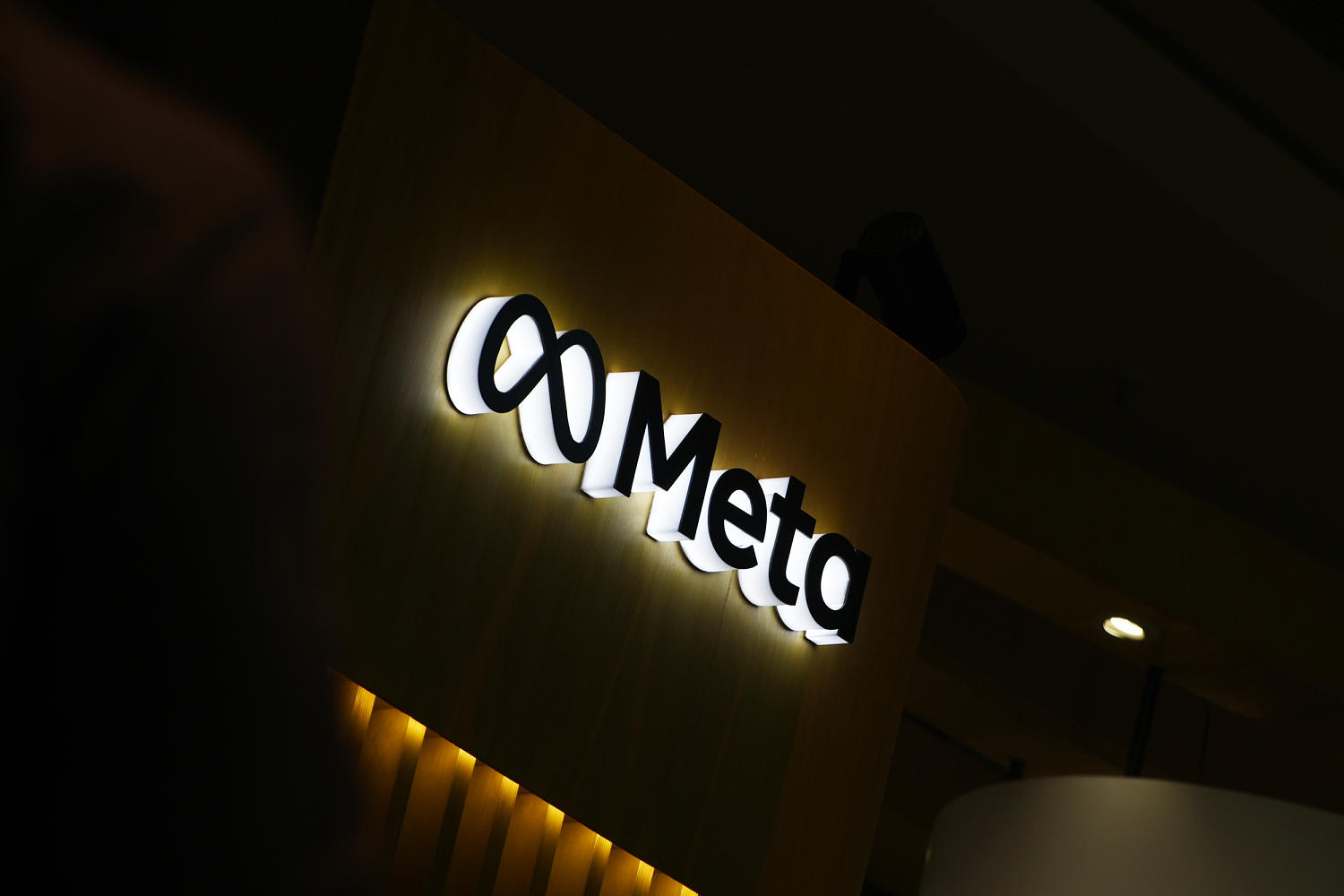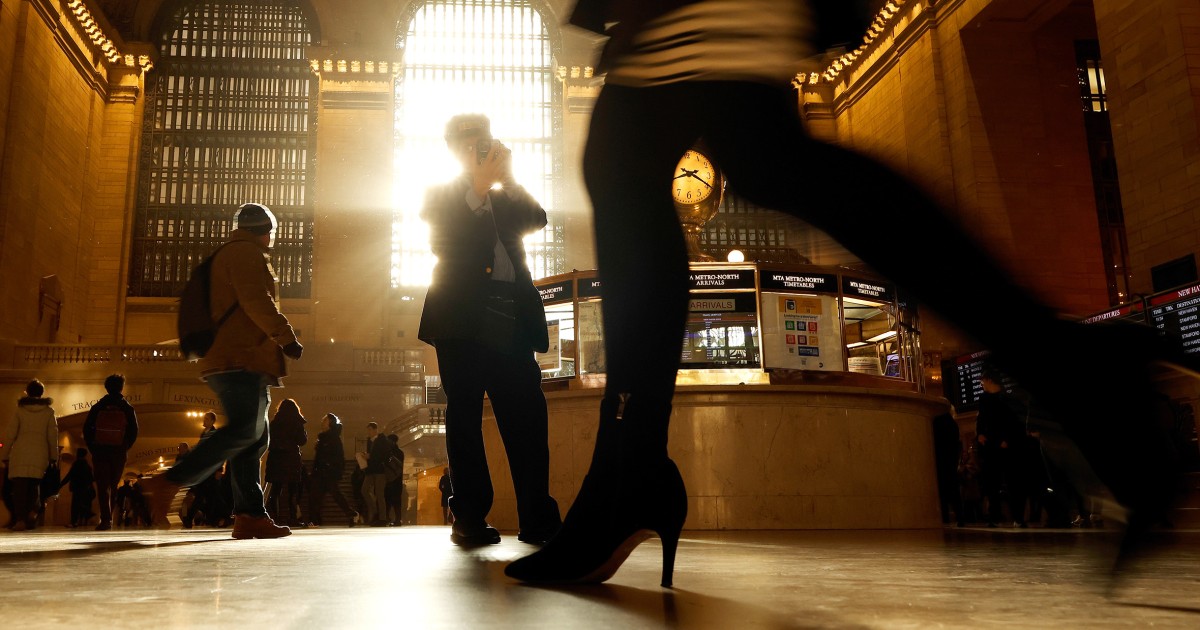
LONDON — Queer creators fear Meta’s decision to change its community standards to allow more incendiary language against people of different races and LGBTQ people could silence their voices, harm livelihoods and damage their mental health.
The changes to Meta, which owns Facebook, Instagram and Threads, were announced last week by CEO Mark Zuckerberg, with critics saying the move was designed to appeal to President-elect Donald Trump, who takes office next week.
“We’ve reached a point where it’s just too many mistakes and too much censorship. It’s time to get back to our roots around free expression,” Zuckerberg said in a video released on Jan. 7.
Meta’s new global rules allow “allegations of mental illness or abnormality when based on gender or sexual orientation, given political and religious discourse about transgenderism and homosexuality and common non-serious usage of words like ‘weird.’”
Meta now also permits “content arguing for gender-based limitations of military, law enforcement, and teaching jobs. We also allow the same content based on sexual orientation, when the content is based on religious beliefs,” according to the new standards.
“Meta’s new policies regarding hateful conduct give users the green light to share hateful rhetoric against LGBTQ+ people, plain and simple,” Jonathan Ochart, CEO of Beverly Hills, California-based marketing firm The Postcard Agency, told Context/the Thomson Reuters Foundation in an email.
“Meta is fanning the fire of hate-fuelled discourse with serious repercussions.”
Scott Seitz, CEO of SPI Marketing in Guilford, Connecticut, said the changes jeopardize the social safety net that helps sustain the mental wellbeing of LGBTQ users.
“The consequences will be devastating: increased suicide rates, hate crimes and pervasive discrimination against women and diverse communities,” he said.
More posts, less moderation
Some creators, however, see a possible upside to the changes that could boost “political” content in the algorithm, leading to more exposure for LGBTQ posts.
As a result, creators such as SK Smigiel, who is nonbinary and posts about gender issues from Maryland, could see an increase in reach.
“I’m already very used to a heavy flow of both positive and negative engagement on my page. Knowing (the changes) will likely increase the negative engagement is disheartening, but not entirely discouraging,” they wrote in an email.
“Any visibility on a trans+ creator’s account can be a positive thing in my opinion,” they said. “I know that not everyone feels this way though.”
They are worried, however, about the effect on brand partnership deals, and they plan to encourage users to support them on other platforms, such as the donation site Patreon, to make up any shortfall.
Jamie Love, founder of London-based social commerce and influencer marketing agency Monumental Marketing, says that brands could be deterred from partnering with creators under the new rules.
“Simply put, brands will not want to invest in platforms that can harm marginalised voices — it’s not just about ethics, it’s good business,” he said in an email.
Some influencer and marketing agencies in the U.S. and across Europe, especially those focused on LGBTQ representation, have been advising creators to disable comments on their posts.
“When our talent, especially the content creators that we represent, get hate online, we always recommend that they simply do not engage. That means deleting comments and messages, reporting and blocking users,” Cora Hamilton, head of Berlin-based LGBTQ marketing agency Uns, wrote via email.
“It’s a quick fix, but it doesn’t mean that the creators aren’t impacted by the hateful things that are said to them.”
The Postcard Agency, among others, is also advising creators to diversify across social media sites, including by joining BlueSky, Pinterest and Substack, and to favor platforms they control, like personal blogs.
Seitz said the biggest platforms for LGBTQ users, alongside Instagram, were LinkedIn and TikTok.
“While migrating away may take time, it’s crucial to start working your followers over to alternative platforms … where many in the LGBTQ+ community have already begun to build a presence,” he said.
However, TikTok is also under threat in the U.S., where the Supreme Court is expected to decide this week whether the video-sharing app will be banned over national security concerns unless Chinese parent ByteDance sells it.
Trump has said he would like to see TikTok remain in the U.S and wants the court to delay the ruling to allow him to seek a “political resolution.”
Finding ways to ‘survive and thrive’
In the biggest overhaul of its approach to managing political content on its services, Meta also said it will scrap its U.S. fact-checking program.
These changes could see it run up against legislation in Europe, such as the Digital Services Act (DSA), under which it could be fined up to 6% of its revenue for failing to remove illegal content, such as hate speech.
Meta says it will continue to remove posts that break the law, but Zuckerberg conceded in his video that changes to content filters meant “we’re going to catch less bad stuff.”
Britain’s Online Safety Act, meanwhile, requires platforms moderate for content that is abusive, based on race, religion, sex, sexual orientation, disability or gender reassignment.
However, it does not come into effect until March of this year.
A representative of media regulator Ofcom, which oversees the law, said it will be gathering information from various companies in coming months on matters regarding their safety processes.
“We’ve already been speaking to many tech firms — including Meta — about what they do now and what they will need to do as new duties in the UK come into force,” the Ofcom representative said.
Despite the changes to Meta, some LGBTQ creators say they are determined to remain vocal online.
“[We] have been resilient over centuries of hate and bigotry and we find ways to survive and thrive,” said Farhad Divecha, head of London-based agency Outloud LGBT.
The agency will educate its partners on the risks of operating in sensitive areas and the potential for backlash, Divecha said.
“No matter what happens as a result of this, I’m standing firmly in my authenticity as a trans+ educator and creator. I’m not going anywhere,” Smigiel said.








